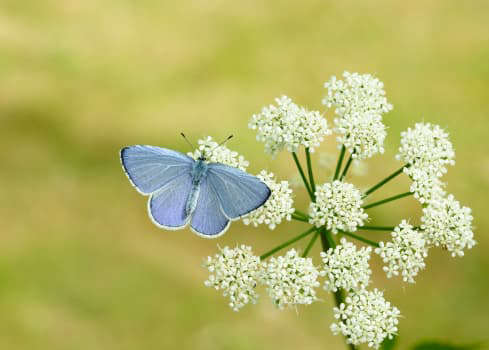
Wildlife charity, Butterfly Conservation, is today calling on people across the country to help scientists better understand the impact of climate change on the UK’s butterflies by taking part in this year’s Big Butterfly Count, the largest citizen-science project of its kind in the world.
The count runs from14th July to 6th August 2023.
Last year’s record UK temperatures, heatwave and drought caused some of the plants that caterpillars feed on to wither and die.
That has been followed by March 2023 being the wettest in England since 1981 and one of the wettest on record in Wales and Northern Ireland, while June 2023 was the hottest on record in the UK, with the average temperature a staggering 2.5°C higher than the norm.
To help discover the effect of this extreme weather, the public are being asked to spend 15 minutes recording the number and type of butterflies they see.
Previously, extreme summer droughts, notably 1976 and 1995, have taken a heavy toll on butterflies, with numbers crashing the following year and taking almost a decade to recover.
With half of the country’s butterfly species now threatened or near threatened with extinction, it’s never been more important to understand how our insects are responding to the changing climate.
The information gathered from the Count will help guide future habitat conservation projects, government policy and wider research into how best to protect the UK’s wildlife.
As well as contributing to important scientific data collection, the Count is also a great way to enjoy time outdoors, connect with nature and boost mental health.
Famous faces to have taken part or supported the Big Butterfly Count in recent years include His Majesty King Charles III, Her Royal Highness Princess Charlotte, President of Butterfly Conservation Sir David Attenborough and, in 2019, even Winnie the Pooh!
Whether done with friends and family, or in a moment of quiet calm and solitude, the Big Butterfly Count is free, open to anyone of any age, in any part of the UK - towns, cities or the countryside. No green space is too small - a back garden, a small terrace or balcony with some pot plants, a public park, allotment or out in the countryside.
80% of butterfly species in the UK have declined since the 1970s, meaning there are now fewer butterflies to be seen than in years gone by. Abundance of the Small Tortoiseshell is down by 79%, the Large White by 33%, the Small White by 19%, while the Gatekeeper has declined by 46%.
However, even if people don’t see any butterflies during their Count, Butterfly Conservation still want to know where there AREN’T any butterflies just as much as where there are, so are urging the public to still log their result and then pick another day (preferably sunny) or location and try again. There are no limits on how many times people can take part.
This year’s Big Butterfly Count runs from Friday 14th July to Sunday 6th August.
For more information and to take part people should simply visit www.bigbutterflycount.org or download the free Big Butterfly Count app.



 ‘Darkest Hour’ star Gary Oldman is coming to York!
‘Darkest Hour’ star Gary Oldman is coming to York!